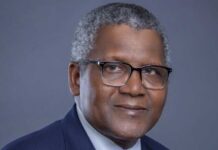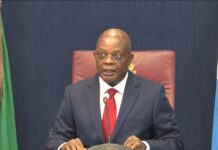The International Monetary Fund (IMF) has advised President Bola Tinubu-led administration to completely phase out electricity subsidy in the country, despite the hardship Nigerians are facing since the removal of fuel subsidy in May 2023.
According to its published ‘Post Financing Assessment (PFA)’ report, the IMF added that the federal government had overwhelmed itself, thus recommending that the total removal of both fuel and electricity subsidies must be implemented.
The Bretton Woods Institution made this recommendation as the mechanism for Nigeria to restore macroeconomic stability, coming as corroboration to what the government had said late last year that electricity subsidy between January and September 2023 had gulped N375.8 billion, as power consumers paid a total of N782.6bn for the commodity during the same period.
The IMF commended the federal government on the reforms it had implemented so far but reiterated that the fuel and electricity subsidies should be removed.
“The new administration has made a strong start, tackling deep-rooted structural issues in challenging circumstances.
“Immediately, it adopted two policy reforms that its predecessors had shied away from: fuel subsidy removal and the unification of the official exchange rates. Since then, the new CBN team has made price stability its core mandate and demonstrated this resolve by dropping its previous role in development finance.
“On the fiscal side, the authorities are developing an ambitious domestic revenue mobilization agenda. Like many other countries, Nigeria faces a difficult external environment and wide-ranging domestic challenges.
“External financing (market and official) is scarce, and global food prices have surged, reflecting the repercussions of conflict and geo-economic fragmentation.
“Per capita growth in Nigeria has stalled, poverty, and food insecurity are high, exacerbating the cost-of-living crisis.
“Low reserves and very limited fiscal space constrain the authorities’ option space. Against this backdrop, the authorities’ focus on restoring macroeconomic stability and creating conditions for sustained, high and inclusive growth is appropriate.
“The CBN has set out on a welcome path of monetary tightening. The Governor has committed to making price stability the core objective of monetary policy, and the CBN has taken actions to mop up excess liquidity.
“Continuing to raise the monetary policy rate until it is positive in real terms would be an important signal of the direction of monetary policy.
“The government’s focus on revenue mobilization and digitalization would improve public service delivery and safeguard fiscal sustainability.
The envisaged reduction in the overall deficit in 2024 would help contain debt vulnerabilities and eliminate the need for CBN financing.
Temporary and targeted support to the most vulnerable in the form of social transfers is needed, given the ongoing cost-of-living crisis. Fuel and electricity subsidies are costly, do not reach those that most need government support and should be phased out completely,” IMF said.
The Nigerian Electricity Regulatory Commission (NERC) revealed that the government subsidised electricity in the first, second and third quarters of 2023.
It was also gathered that power distribution companies billed electricity users a total of N1.06 trillion nationwide during the nine months, but received N782.6bn despite the blackouts in many parts of Nigeria.
On subsidy payments, it was observed that in the first quarter of 2023, the Federal Government subsidised power by N36 billion, this increased to N135.2 billion in the second quarter, and skyrocketed to N204.6 billion in the third quarter. Figures for the fourth quarter are not because we are still in the fourth quarter of 2023.
























